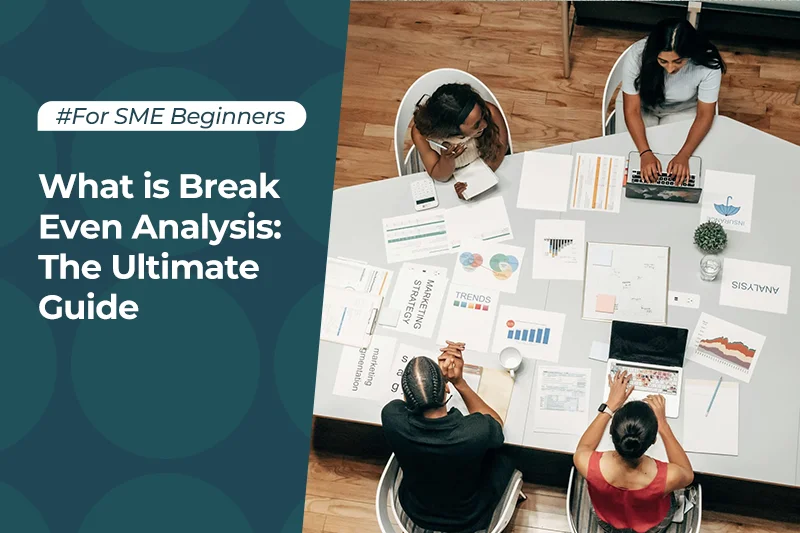B2B 101: A quick guide to business-to-business basics

While the term B2B is used pretty frequently in our industry, as industry jargon, it's not always clear what we mean by B2B. At the end of the day, business owners, entrepreneurs and innovators new and old, could use a refresher course.
Welcome to B2B 101! Today, we are sharing an overview of key terms used throughout the industry and within the Alibaba.com platform.
First things first — what is B2B?
Simply put, B2B is an acronym for Business-to-Business. A B2B company is one that sells products (or services) to other businesses, not individual consumers. These products and services typically go into the operations of the "buying" businesses, whether these are component parts that go into manufacturing, goods that get re-sold, services that facilitate payment, logistics, and protection, or management and advisory services. This is different from B2C, which stands for Business-to-Consumer, as B2C companies only sell products (or services) to customers for their personal use.
"B2B trade" can be viewed as wholesale transactions. A typical order (of goods or products) in the B2B industry is significantly larger than in B2C – think thousands of apples instead of just one. This is because B2B buyers need larger quantities to help operate and grow their own companies. It's not for personal use but to create their own finished product, to resell (either wholesale/ distribution or retail), or to operate their businesses (think office and cleaning supplies!).
An easy example to visualize: a B2C company will sell one pair of socks, ready to be worn, to one person. A B2B company will sell a shipping container full of plain white socks to another company to customize and resell. When you buy a pair of socks from a retailer, it is the very end—that's the "B2C" part-- of the value chain. But before the pair of socks is ready for the retailer to sell, it has gone through a long and complicated journey—from the farmer who grew the cotton, all the way to the manufacturer of socks, to when the socks arrive on the shelves—and this is why the B2B global market opportunity is 6x that of B2C, according to the US ITC.
The B2B value chain

These companies in the B2B trade space that are either selling or buying the socks fall into two (fairly straightforward) categories: sellers and buyers.
What is a B2B seller?
B2B sellers (of goods) are the ones providing finished or unfinished products to other companies to use in their own products or to resell. B2B sellers may manufacture and sell thousands of tires to an automobile company, essential to the final product. Or they may supply customized, ready-to-sell mugs to a retailer.
What is a B2B buyer?
In the examples above, a B2B buyer is the company purchasing the tires for their automobile company, or the mugs for their retail store, or the cleaning supplies for their factories. Buyers may need individual parts to incorporate in their own final product. Other buyers may give precise order specifications to get customized, finished products.
The relationship between B2B buyers and sellers has traditionally been conducted "offline"-- over the phone, in-person, or, in the past decade, migrated to emails to some extent. According to our Alibaba.com US SMB Confidence Survey, two-thirds of the 5,000 B2B companies we surveyed just started doing business online in the past five years.
Alibaba.com survey results: 90% of online adoption among B2B sellers and buyers


- 90% report doing at least some of their B2B selling or sourcing online
- 56% report using online channels for fewer than 5 years
- 30% report using online channels for more than 5 years
- Online channels mainly reflect email, website order forms, and company websites.
In the ever-changing world of tech, it's important to move beyond this 'bare-minimum' of using online sources. There is an entire world of entrepreneurs and small business owners looking to buy and sell in the B2B space.That's why Alibaba.com is here. Our online B2B marketplace creates a way for buyers and sellers to easily meet one another and find new business.
Alibaba.com survey results: Top benefits of going online

According to the Alibaba.com Small and Medium Business Confidence Survey (December 2019) of 5,000 B2B businesses that buy and/or sell goods to other businesses, the top benefits sellers cite from selling online are:
- reaching more customers (59%)
- finding customers more quickly (47%)
- increasing profit margins (44%)
Buyers cite the top benefits for online sourcing as:
- finding suppliers more quickly (53%)
- reducing the need for travel (44%)
- greater purchasing power (38%)
- higher profit margins (38%)
Want more information on getting your B2B storefront up and running? Sign up to speak with one of our ecommerce experts.
Start your borderless business here
Tell us about your business and stay connected.
Keep up with the latest from Alibaba.com?
Subscribe to us, get free e-commerce tips, inspiration, and resources delivered directly to your inbox.















